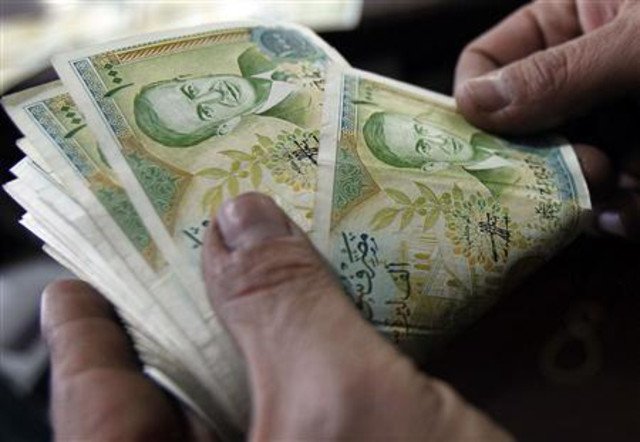Chatham House, a Think Tank in Britain, published yesterday a research paper on the Syrian economy it titled, “Syria’s Economy: Picking up the Pieces” in which it outlined the drivers behind an ever collapsing Syrian economy and its institutional systems the Assad regime is unable to sustain for long.
Reading their reports, it is not hard to conclude that the Syrian economy is collapsing rapidly.
Here are the summary bullet points highlights of their report:
- The impact on the Syrian economy of four years of conflict is hard to quantify, and no statistical analysis can adequately convey the scale of the human devastation that the war has wrought. Nevertheless, the task of mitigating the effects of the conflict and planning for the future requires some understanding of the core economic issues.
- Syria’s economy has contracted by more than 50 per cent in real terms since 2011, with the biggest losses in output coming in the energy and manufacturing sectors. Agriculture has assumed a bigger role in national output in relative terms, but food production has fallen sharply as a result of the conflict.
- The population has shrunk from 21 million to about 17.5 million as a result of outward migration (mainly as refugee flows) and more than a quarter of a million deaths. At least a third of the remaining population is internally displaced.
- Inflation has averaged 51 per cent between January 2012 and March 2015, according to the monthly data issued by the government, and the Syrian pound has depreciated by about 80 per cent since the start of the conflict.
- The government in Damascus continues to function in the guise of a national administration in respect of setting budgets, managing prices and providing services such as electricity, but its institutional integrity has been eroded.
- A war economy has emerged in which groups such as ISIS, the Kurdish PYD and rebels in the northwest and the south have established autonomous economic spheres, and in which the role of international aid in sustaining the population has assumed increasing importance.
- The Assad regime has received critical economic support from Iran in the form of oil supplies and credit to enable imports of commodities and equipment. However, Iran is setting political and economic conditions for continuing to provide such aid.
- The military advances both by ISIS and by anti-regime rebels in early 2015 have put further pressure on Assad, including on the economic front. As the conflict enters a new phase, fresh economic challenges will emerge, including the task of planning for its aftermath.
With a collapsing Syrian economy, Iran is buying Syria on the cheap. Conditional credit lines means Assad no longer controls Syria’s destiny. The country has become a full satellite of Iranian Shiite terror.
Chatham House, in the past, has taken a more pro-Assad view than their counterpart U.S. tanks producing similar research papers. Is it because of the Akhras family influence in Britain (Assad’s parents-in-law) spending millions to shore-up the regime or is it out of Chatham House own bias and conviction is not a question we could answer today.
But when Chatham House says the Syrian economy is in pieces, use a badness factor of 1.5 to get a more lucid picture of Syria’s reality.
Syria’s paper money with Hafez al-Assad pictures on them could soon become less expensive than toilet paper, which will make their utilitarian use a bit more appropriate.



COMMENTS